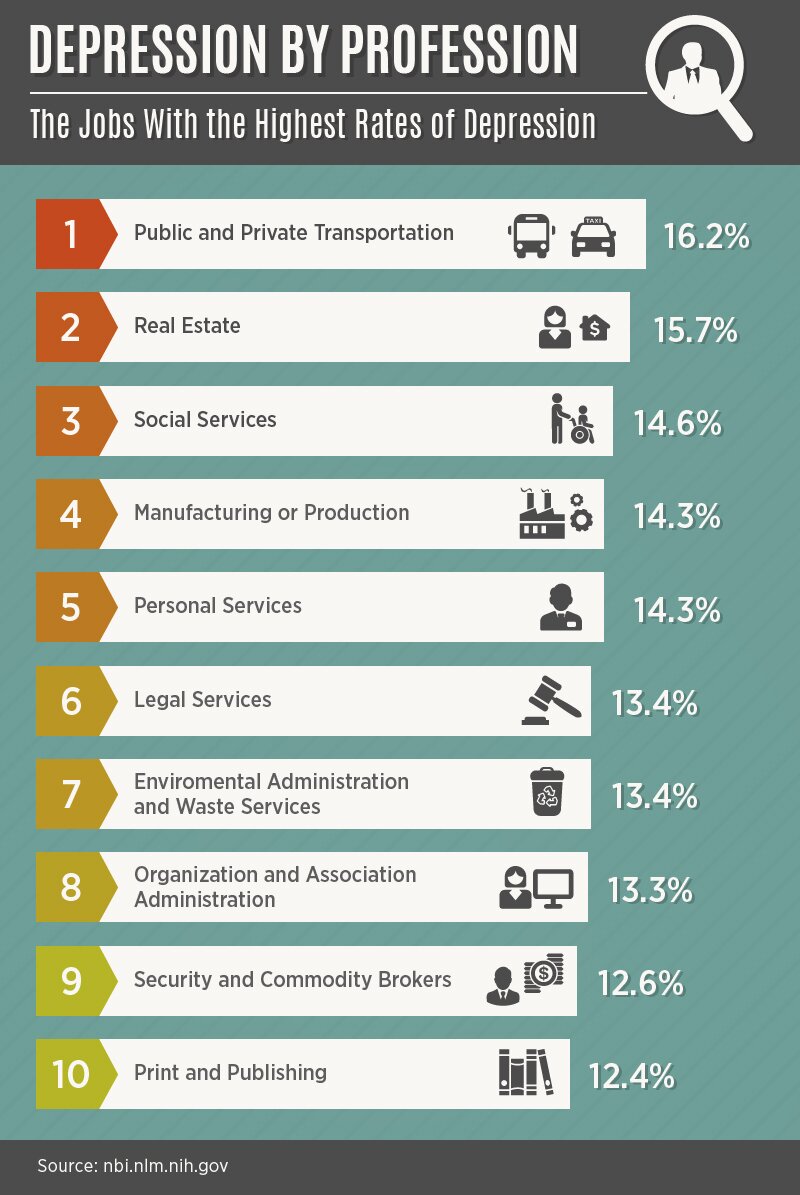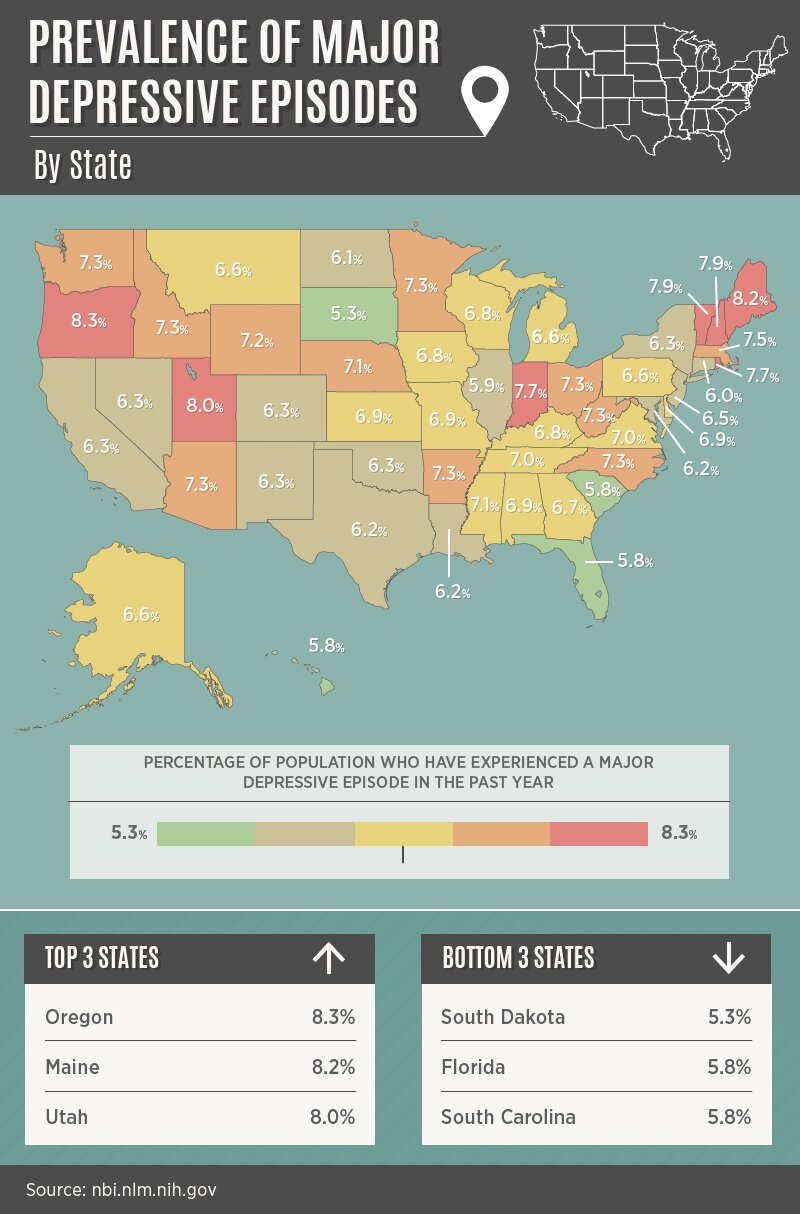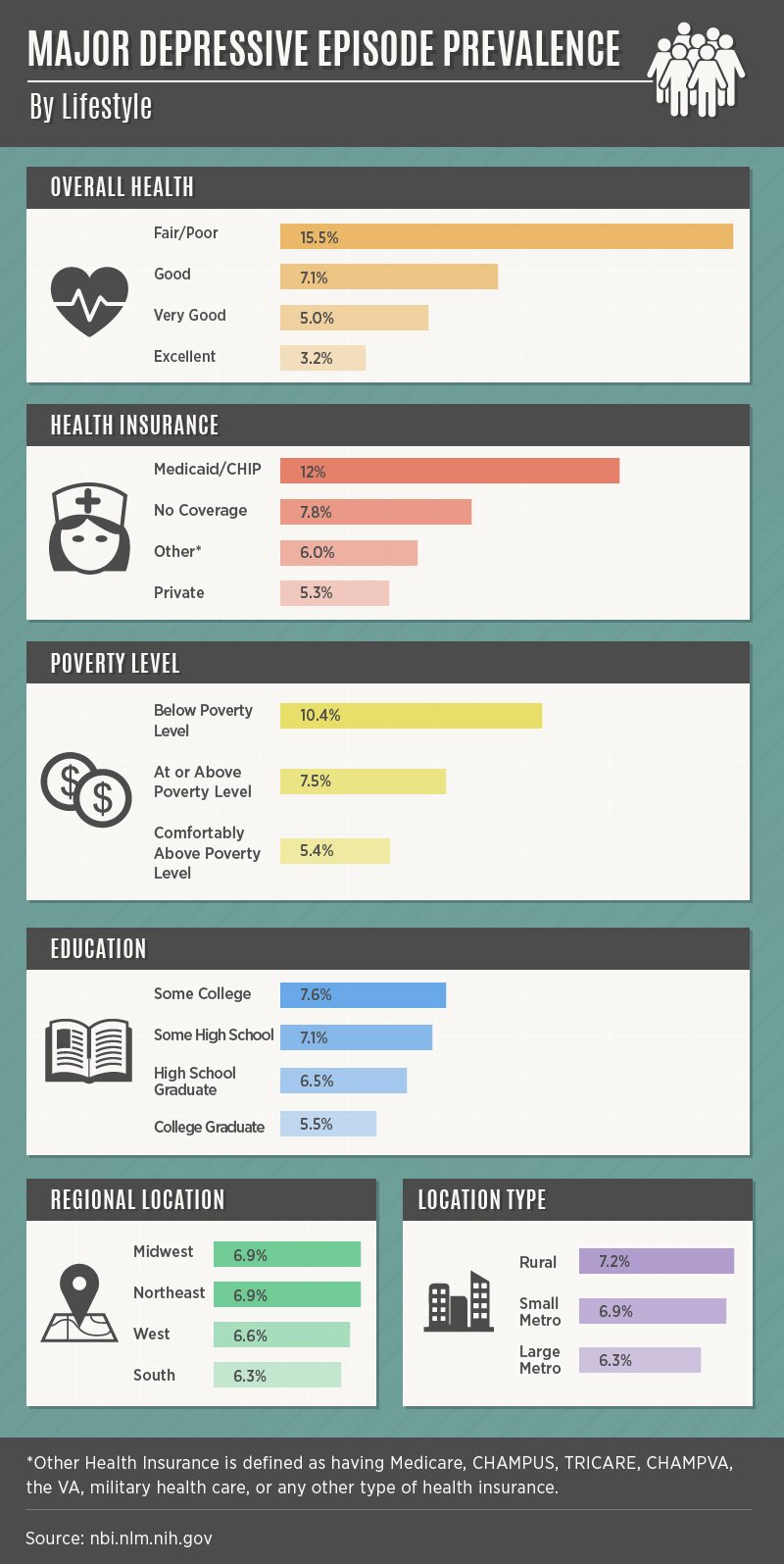
Depression, a prevalent and serious mood disorder, can significantly impair an individual's daily life, affecting their ability to work, sleep, eat, and enjoy activities they once found pleasurable. Its impact on work life is particularly notable, as it can reduce productivity, increase absenteeism, and heighten the risk of unemployment. Certain industries report higher rates of depression among their workforce, attributed to job-related stressors such as long hours, high demands, and exposure to emotionally challenging situations. The top industries affected include healthcare, especially nurses and doctors; education, particularly among teachers; and customer service roles, including call center workers. Understanding the prevalence of depression within these fields is crucial for implementing effective support systems and promoting mental health in the workplace.
According to data from the World Health Organization (WHO), depression affects as many as 350 million people worldwide. We put together data from the Substance Abuse and Mental Health Services Administration to uncover the prevalence of depression across age groups, work forces, and other demographics. The results give us insight into the permeating effects of depression.
Which Industries are the Most Affected?

There are certain aspects of any job that can lead to high-stress situations sometimes resulting in depression. Most of us have experienced crushing days at work that leave us in a fit of worry with no motivation for life. Some professions, however, have a higher percentage of workers who experience depression.
Therapists are Standing By to Treat Your Depression, Anxiety or Other Mental Health Needs
Explore Your Options Today
Ad
The five industries most affected by depression cover a large spectrum. From those who were surveyed, public and private transit showed the highest at 16.2% of workers suffering depression, followed by real estate (15.7%), social services (14.6%), manufacturing (14.3%), and personal services (14.3%).
We see more diversity as the list continues. But what is a common trend among the employment sectors that could lead to depression?
One major point is that people working in many of the industries listed, and others not listed (such as health care at 11.4%), are often thankless jobs in which workers experience some of the best (and worst) of society on a daily basis.
One study seemed to draw a correlation between jobs that require frequent or difficult interactions with the public or clients and have low levels of physical activity with increased rates of depression. That could explain why professions such as heavy construction employees (7.54%), miners (7.13%), and recreation workers (6.87%) have much lower rates of reported depression.
Which States are the Most Affected?

When you look at the prevalence of major depressive episodes across the U.S., there’s really no “safe place.” Locations like New England or the northwestern states have some of the highest incidents of prolonged depression, with nearly 8% or more of the population it.
Getting away from major metro areas won’t necessarily solve the problem either. Even rural states in the South and Midwest hover around 6% to 7% of the population experiencing major depressive episodes.
Depression isn’t a physical thing you can hide from. It can only be dealt with through internal confrontation and direct treatment. People struggle with depression in every state. No matter where you go, it comes with you. Depending on your profession, it could even become more severe based on where you live or move to as unemployment rates, sluggish economies, and budget shortfalls vary from state to state.
The Lifestyles and Demographics Associated With Depression

It can be difficult to cope when faced with low wages or unemployment compounded by health concerns for yourself or a family member and a limited education that might make it difficult to find better job opportunities.
When you factor in family struggles, social concerns, legal issues, or the loss of a loved one, it can all be very overwhelming.
While depression rates among geographic regions stay fairly close (6% to 7%), you can see a dramatic change in major depressive episodes from those in excellent health (3.2%) and those with fair or poor health (15.5%). This can be tied to health insurance as well: A mere 5% of people with private insurance suffer major depression, but 6% to 12% of those with more limited (or no) coverage suffer major depression.
A similar jump can be seen with income, where depression rates as much as double where income plummets below the poverty line.
Much of this revolves around being stuck, isolated, and drowning in feelings of hopelessness, but there is always hope. Don’t wait to receive help if you’re feeling alone and depressed.
Conclusion
Depression can begin to manifest at a very early age, and episodes can continue into adulthood with outside influences and stressors such as health, employment, and economic and social issues that create feelings of hopelessness and isolation.
While some professions and even geographic regions can lead to more extreme cases of major depressive events, those are always outside influences. While circumstance might make you feel hopeless, or drive you to a dark place, they do not define or control who you are.
If you’re struggling with depression, or know someone who needs help coping, there are treatment options and professionals trained to offer support and therapy. Visit www.MentalHelp.Net or call
1-888-993-3112Who Answers? today to get the resources you need.
Sources

As advocates of mental health and wellness, we take great pride in educating our readers on the various online therapy providers available. MentalHelp has partnered with several thought leaders in the mental health and wellness space, so we can help you make informed decisions on your wellness journey. MentalHelp may receive marketing compensation from these companies should you choose to use their services.
MentalHelp may receive marketing compensation from the above-listed companies should you choose to use their services.
Ad




